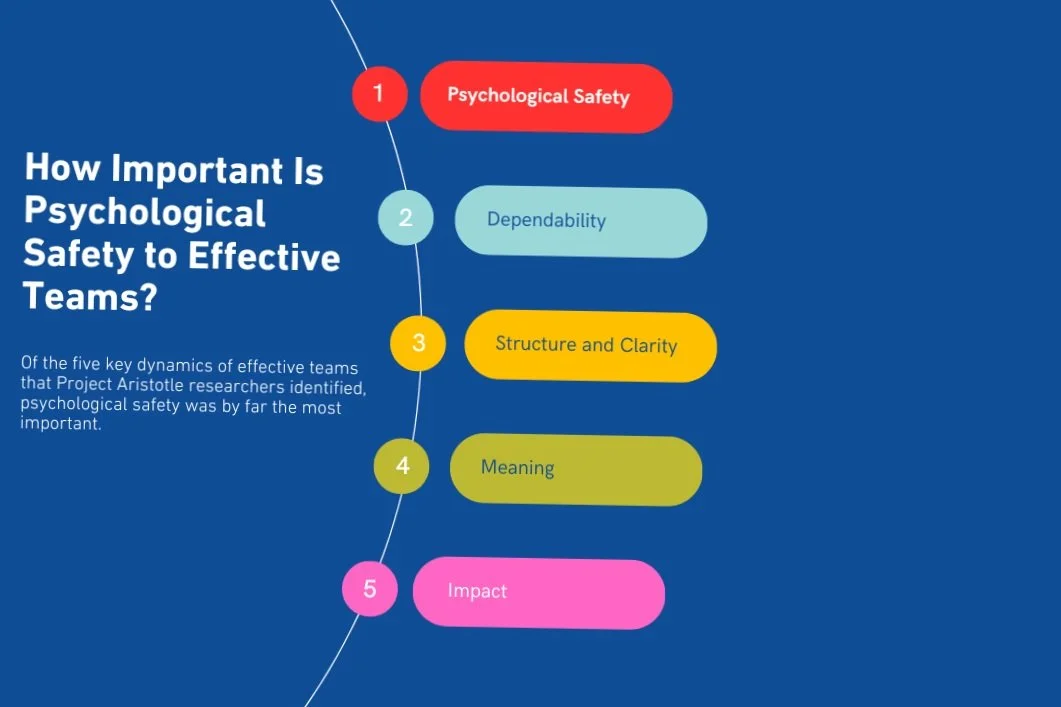Build Psychological Safety for High-Performing Teams
According to research, psychological safety is the strongest predictor of high-performing teams.
At the team level, psychological safety is a shared belief held by members of a team that it’s OK to take risks, to express their ideas and concerns, to speak up with questions, and to admit mistakes — all without fear of negative consequences.
Psychological safety doesn’t just happen - it’s a result of team norms that reinforce a felt permission of candor.
Does your workplace training measure effectiveness?
Ours does.
A Data-Driven Approach
To assess the effectiveness of the training, we measure knowledge and behaviors before and after the workshop:
Pre-workshop data establishes a baseline, identifying knowledge gaps and areas for improvement.
Post-workshop data measures knowledge gains, shifts in attitudes, and changes in planned behavior.
Ongoing tracking allows your organization to evaluate whether training leads to meaningful, long-term cultural improvements.
A focus on data supports sustained behavior change by identifying trends, reinforcing positive behaviors to create a safer, more respectful work environment.
What Our Psychological Safety Course Covers -
And How We Do It:
Details
120 minutes (live) plus 30 minutes asynchronous content
Facilitated live by an expert
Activities, breakouts, and more interactive content
Introduction to Psychological Safety
The basics of psychological safety and research on its significance in the workplace.
The outcomes related to psychological safety: team members are more engaged and driven, it supports better decision-making and continuous learning.
Assessing Whether Your Team Has It
Self- and team-assessments to determine trust and psychological safety, identifying areas of strength and weaknesses
How Psychological Safety Reinforces Inclusive Culture
Reviewing the elements of inclusion and the deep connection between feeling trusted, valued, and able to be one’s authentic self and the connection to psychological safety on teams
The Value of Norms
Norms are the key to psychological safety - which norms matter, which norms create psychological safety
How emotional intelligence reinforces the ability to identify and address key norms on teams.
Post Workshop Support
Materials that reinforce learning by email
Reminders on behaviors that reinforce respect at work
Strategies for addressing challenging behavior
Our Psychological Safety Workshops Builds Your Skills
Applying psychological safety on your teams;
Learning to build trust on teams, recognizing that individuals do not all share the same expectations of trust;
Identifying the norms that support people to speak up without fear at work; and
Creating a plan to put learning into practice.


